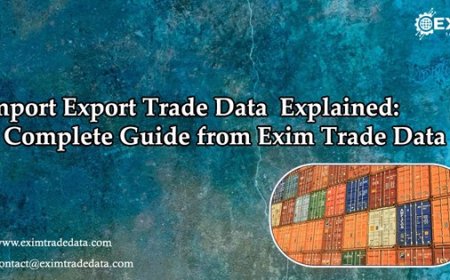What Financially Savvy People Always Use for Big Purchases
Making big-ticket purchases—whether it's the latest smartphone, a new refrigerator, an international vacation, or even home renovation—can feel both exciting and overwhelming.
Making big-ticket purchaseswhether it's the latest smartphone, a new refrigerator, an international vacation, or even home renovationcan feel both exciting and overwhelming. For many, these moments often lead to rushed financial decisions, quick EMI schemes, or even dipping into emergency savings. But financially savvy individuals approach these purchases very differently. They rely on a mix of strategic planning, financial tools, and informed choices to ensure theyre not just spending but maximizing value while protecting their financial health.
So what do the financially savvy always use when making big purchases? Let's break it down.
1. They Start with a Financial Plan, Not Just a Price Tag
One of the first things financially savvy people do is evaluate the purpose and timing of the purchase. Instead of reacting to a sale or limited-time offer, they ask:
-
Is this a need or a want?
-
Can this be delayed for a better deal or better financial preparedness?
-
Is there a planned budget for it?
By anchoring the purchase to a financial plan rather than just the sticker price, they maintain control over their spending and avoid impulse buys that can sabotage their long-term goals.
2. They Know Their Credit Is a ToolNot a Crutch
When it comes to funding a major purchase, credit often comes into play. But smart spenders use credit strategicallynot out of desperation. They understand the Difference Between Credit and Debt, a distinction thats essential but often misunderstood.
In simple terms:
-
Credit is a financial tool that offers flexibility, rewards, and convenience when used responsibly.
-
Debt is the burden created when credit is used irresponsibly or without a repayment plan.
Financially savvy individuals use credit as a lever to enhance their purchasing power, earn rewards, and even build their credit score. But they always do so with a clear plan to repay in full or on favorable terms.
3. They Choose the Right Financial InstrumentOften the Best Credit Cards
When it comes to big purchases, not all payment methods are created equal. Many savvy buyers prefer using best credit cards tailored to their spending category. Why? Because the right card can offer:
-
Cashback on big purchases
-
Reward points that can be redeemed for travel, vouchers, or discounts
-
Purchase protection or extended warranties
-
EMI conversion options at low or no interest
-
Fraud protection and dispute resolution
Rather than paying cash or using a basic debit card, financially literate consumers choose cards that return value to them, effectively getting more for every rupee spent.
4. They Compare Before Committing
A financially sharp person never walks into a showroom or clicks Buy Now on the first offer they see. Comparison is keywhether for products or financial products like loans, EMIs, or credit cards. They look at:
-
Price comparisons across online and offline platforms
-
Seasonal deals and discounts
-
Merchant tie-ups with banks for instant discounts or cashback
-
Processing fees, interest rates, or hidden costs on EMI schemes
They also use tools like budgeting apps or aggregator platforms to get a full picture before committing funds. This effort ensures they arent just buying the producttheyre buying the best deal possible.
5. They Budget for the RepaymentBefore the Purchase
Using credit for a large purchase is only savvy when there's a repayment strategy in place. Smart consumers calculate:
-
How long it will take to repay the amount
-
Whether they can clear dues before interest kicks in
-
How the EMI fits into their monthly cash flow
They often use pre-set budgets or sinking fundsa method of saving a small amount regularly towards a big purchase. This hybrid approach of part-saving and part-credit usage reduces financial stress and keeps credit usage in check.
6. They Time Their Purchases Strategically
Big-ticket items often have predictable price cycles. Whether it's festive season discounts, end-of-season sales, or financial year-end clearancessavvy spenders wait for the right moment. They also align big purchases with:
-
Credit card billing cycles to maximize interest-free periods
-
Bonus income or annual incentives
-
Zero-cost EMI windows offered during major sales
This not only saves money but provides better control over when and how the payment is made.
7. They Use Loyalty and Reward Systems to Offset Costs
If you're spending big, why not get rewarded for it?
Financially aware individuals often accumulate loyalty points, cashback, or airline miles from their credit card spends. Over time, these perks can significantly offset the cost of future purchases. In fact, some even schedule major spending around credit card promotions that offer extra points or milestone benefits.
For example:
-
Booking international flights using points earned from prior large purchases
-
Using cashback to pay down future bills
-
Availing festival offers for additional reward accelerators
8. They Understand Total Cost of Ownership
Smart buyers look beyond the price tag. They evaluate the lifetime cost of an item:
-
For electronics: Energy usage, maintenance, software updates
-
For cars: Insurance, fuel efficiency, servicing
-
For appliances: Warranty, repair costs, after-sales service
This holistic view helps them make better choices that are cost-effective not just today, but in the long run.
9. They Avoid Emotional Buying Triggers
Emotion is often the enemy of financial wisdom. Big purchases tied to celebrations, stress, peer pressure, or status can lead to over-spending or regret.
Financially wise individuals pause before pulling the trigger. They use a cooling-off period before confirming a major spend, ask for a second opinion, or wait 2448 hours before checkout. This mental discipline ensures purchases are based on need, value, and readinessnot emotion.
10. They Keep Emergency Funds Intact
No matter how tempting the deal, a savvy buyer never dips into their emergency fund. These savings are reserved for actual emergencieshealth issues, job loss, or urgent repairs. If the big purchase cant be made without touching this safety net, they postpone or scale it down.
This is perhaps the most overlooked trait of financially sound individuals: knowing when not to buy.
Conclusion: Buy Big the Smart Way
Big purchases are a part of life. Whether its upgrading your home, planning a family vacation, or investing in a personal gadgetyou dont need to shy away from them. What matters is how you pay, when you pay, and why youre paying.
Financially savvy people use planning, the right tools (like credit cards), and smart timing to make the most of their big spends. They dont just focus on the purchasethey focus on the value, both short- and long-term.
The next time youre ready to swipe for something big, take a step back and ask yourself: Am I spending smart, or just spending? That one question can make all the difference.






































